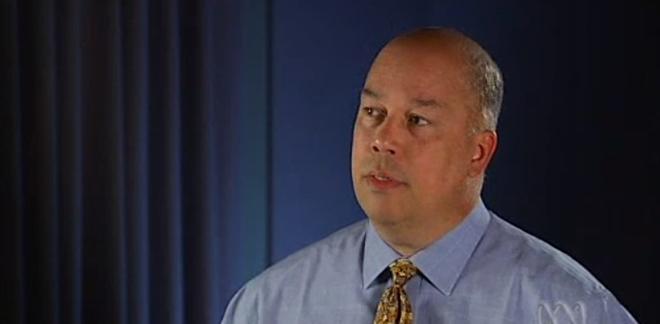Google's technology ambassador said in an interview that he trusts Apple and Microsoft in handling personal data, but joked that Apple Maps users were taking their lives in their own hands using the company's much-maligned mapping app.
In an interview with Australian Broadcasting Corporation show "One Plus One," Michael T. Jones answered — and occasionally parried — a range of questions on the importance of privacy in the information era as well as concerns over so much personal information being gathered and held by large, multinational corporations such as Google, Apple, Microsoft, and Facebook.
Privacy has been a major issue for both Google and Apple in recent years, as both companies produce hardware and software products that store increasingly granular data on users behaviors, preferences, personal lives, and locations. The Federal Trade Commission recently recommended that both firms do more to protect children's privacy in kids' apps. The Commission also fined Google last year for circumventing privacy protections built into Apple's Safari web browser.
"I think it's a matter of you only work with people that you trust," Jones said when pressed on whether he sees any danger in these large organizations holding an increasing amount of data on individual behaviors. "I certainly trust Apple, and I trust Google, and I trust Microsoft, for that matter. These are not corrupt organizations; these are nice people trying to serve you. In the case of Google, everyone does it voluntarily. You do a search, you could have gone to somebody else; you came to us. If you thought we might betray you, you wouldn't come to us. So we stand to lose $30 billion or more the moment people lose trust in us."
"I certainly trust Apple, and I trust Google, and I trust Microsoft, for that matter. These are not corrupt organizations; these are nice people trying to serve you."
—Michael T. Jones, Google Chief Technology Advocate
Jones was less kind to Google's Cupertino rival when it came to mapping, ribbing Apple for the ongoing issues with its new Maps app, which replaced Google's app as the default option with iOS 6.
"I think you should be worried about getting where you want to go if you use Apple Maps," he said, parrying another question on personal information. "If you want to be honest, you're taking your life in your own hands there."
Jones' joke referred to reports from last year that police in Victoria, Australia, had issued warnings to motorists telling them that Apple's iOS 6 Maps app had caused a number of travelers to become stranded in a remote national park. The error was due to iOS Maps incorrectly displaying Mildura more than 40 miles southeast of its actual location. At the time, police said conditions in the location could make the mapping inaccuracy a "potentially life-threatening issue."
Coming back to the question at hand, Jones sought to allay concerns over how much data large companies hold on their users, specifically in the case of Google.
"I think it's overrated at times, the insight these companies have. We don't inform on anybody."
—Jones
"What we know is basically public information. I think it's overrated at times, the insight these companies have. We don't inform on anybody. We don't make a value judgment. It's just better information for you. It's the sort of information that a concierge might give you at a hotel. You ask for information on a restaurant and you're wearing a tuxedo or a bathing suit, they might give you different information... It's not that deep."
Jones also touched on the future of computing, saying he believes wearable technology — such as Google Glass and similar tech from Apple — is the way forward.
"There are seven billion people. Two billion of them have Internet, but four billion of them have mobile telephones. So, really, the day of the computer is over as far as consumers are concerned; the day of the mobile device is the new day, and what I see as happening is that that device is going to become ever more intimate... You won't have it in your pocket. It'll be in your glasses, in your ear, essentially a part of one of your sensory organs."
Summing up, Jones said consumers had a choice on where they could turn if they wanted the services Apple, Google, Facebook, and others provide. Even though those companies operate in an American corporate environment, they could, according to Jones, be better than the alternative.
"Who do you trust more: Google or your mayor?"
—Jones
"I think you should decide: Do you want the world's information coming to you? If you do, it's got to come from one of two sources: either your government or the United Nations or some other government, or from a company. Who do you trust more: Google or your mayor?"
He went on to tout Google's record as trustworthy.
"I think, to be truthful, we have a pretty unblemished record of serving every human... What I would like to be judged on is our actual behavior. I think we've gotten an A, maybe an A+."


